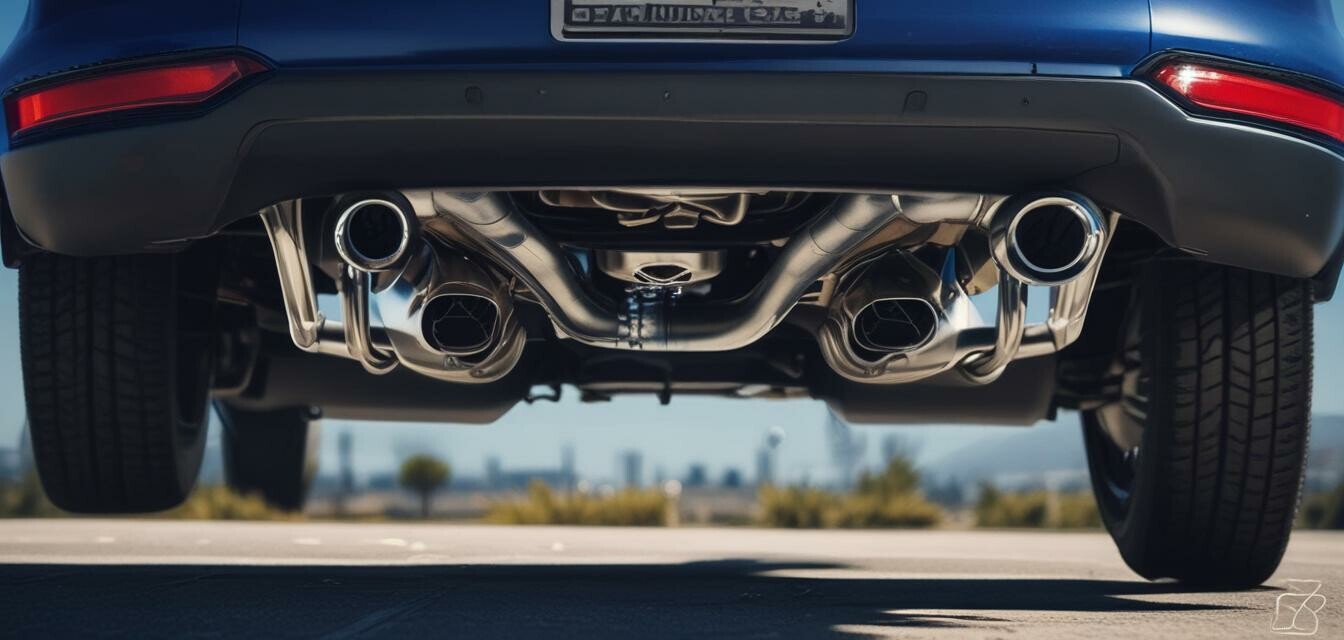
How to Install Performance Exhaust Systems on VW
Key Takeaways
- Installing a performance exhaust system enhances your VW’s airflow and sound.
- Follow the correct tools and steps for a successful installation.
- Regular maintenance after installation is crucial for optimal performance.
- Consult your vehicle manual for specific compatibility guidelines.
Installing a performance exhaust system on your Volkswagen (VW) can significantly enhance your vehicle's performance, improve sound, and provide better fuel efficiency. This guide will walk you through the entire process step-by-step, making the installation manageable even for those who may not consider themselves mechanically inclined. Let's get started!
Benefits of installing a performance exhaust system
Before diving into the installation process, it’s essential to understand the benefits of upgrading your exhaust system. Here are some advantages you can expect:
- Improved engine performance through increased horsepower and torque.
- Enhanced sound, providing a more aggressive note and improved driving experience.
- Better fuel efficiency due to improved exhaust flow.
- Lightweight materials can reduce overall vehicle weight.
Tools needed for installation
Gather the following tools before starting your installation project:
- Wrench set
- Screwdrivers (flathead and Phillips)
- Socket set
- Jack and jack stands
- Pipe cutter
- Safety gloves and glasses
Step-by-step installation process
Now that you’re prepared with the necessary tools, it's time to install the exhaust system. Here’s a comprehensive step-by-step guide:
Step 1: Prepare the vehicle
- Park your VW on a flat surface and engage the parking brake.
- Lift the vehicle using a jack and secure it on jack stands for safety.
Step 2: Remove the old exhaust system
- Locate the existing exhaust system underneath your VW.
- Loosen the clamps that hold the exhaust pipes to the catalytic converter and muffler using your wrench.
- If necessary, use the pipe cutter to cut through the exhaust pipes.
- Carefully remove the old exhaust components and place them aside.
Step 3: Install the new exhaust system
- Begin by attaching the new exhaust piping to the catalytic converter.
- Ensure that the pipes fit snugly and use the provided clamps to secure them.
- Continue connecting the exhaust components following the manufacturer’s instructions.
- Check for proper alignment and adjust as needed.
Step 4: Final adjustments and testing
- Once everything is connected, double-check the tightness of all clamps and connections.
- Start the engine to check for leaks.
- Listen for any unusual sounds and make adjustments if necessary.
Common pitfalls to avoid
When installing a performance exhaust system, here are some common mistakes to avoid:
- Not checking compatibility with your specific VW model.
- Ignoring the specified diameter of the pipes for optimal flow.
- Failing to secure clamps properly, leading to exhaust leaks.
- Neglecting to use heat-resistant materials that can withstand high temperatures.
Maintenance tips post-installation
After installing your new exhaust system, consider these maintenance tips to ensure it continues to perform at its best:
- Regularly inspect the system for signs of wear or damage.
- Check the tightness of clamps and connections periodically.
- Clean the exhaust tips to prevent carbon buildup.
- Schedule professional inspections as necessary to ensure proper functioning.
Pros
- Significantly improves performance and sound.
- Can potentially enhance fuel efficiency.
- Enhances the visual appeal of your VW.
Cons
- May require professional installation if not confident in DIY skills.
- Potential for increased noise levels.
- Certain exhaust systems may not comply with local noise regulations.
Tips for beginners
- Always consult your vehicle's manual for specifications.
- Consider watching tutorials for visual assistance.
- Don’t hesitate to ask for help from more experienced DIYers.
For further enhancements to your VW, explore our other exterior upgrades and performance parts.
Conclusion
Installing a performance exhaust system on your VW is a rewarding project that can significantly enhance your driving experience. By following the steps outlined in this guide, you’ll be able to complete the installation with ease. Be sure to take proper care of your exhaust system post-installation to enjoy its benefits for years to come!
For more detailed guides, check our How-To Guides section for all kinds of tuning tips and advice.
